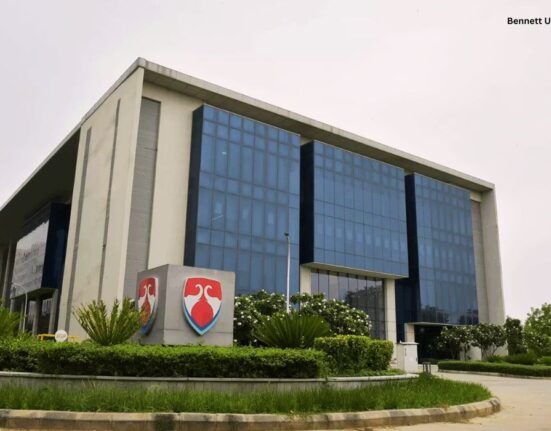British Rugby giant Rob Burrow died on 2 June 2024 at the age of 41, after around 5 year-long battle against Motor Neurone Disease.
What is Motor Neuron Diseases?
Motor neuron diseases (MND) is an umbrella term used for diseases affecting motor nerves ( these are the efferent nerves, integral to the Central Nervous System which carries brain signals back to the body peripheries). In this disease, these motor nerves degenerate with time, which are irreversible for regeneration. This is often uncommon and diagnosed in later stages of life. With a progressive nature, the situation worsens. Symptoms usually comprise weakness in extremities and grip, speech getting slurred, muscles twitching and frequent cramps. Later on, the disease manifests itself in limiting movement and even with respiratory crisis. Though the exact cause of Motor Neuron Diseases is yet unknown, 10% of cases are found to be genetically inherited.
Rob’s journey with MND:
Rob had earlier showcased his determination and perseverance when he being 5ft 5 in tall took down other players weighing probably double his weight and much taller than him. Not only did he shut the mouths of critics, but he is also celebrated as one of the most prominent players of British Rugby. Rob was diagnosed with Motor Neuron Disease around 5 years ago. His neurologist and other healthcare professionals talk about how he was always smiling even while strangling with a non-curable disease. He has always been a source of strength and inspiration for the other patients.
Personal life:
Rob had been married to Lindsey Burrow. With his wife, he lived with three children. The family had been playing a pivotal role in his psycho-social support structure. The day after his death, the family decided to open a centre for patients suffering from Motor neurone disease, signifying how proud Rob would be seeing the centre because this is what exactly he would have wanted.
What made Rob Burrow extraordinary:
From being an active sportsperson running around the field to being tied down in a place with paralysis and lack of speech, the worsening transition is not easy to accept. But Rob had sustained this long battle with an unbelievably positive attitude, that not only made him affirmative but his family and well-wishers as well. People who have spent time with him describe him as one of the most extraordinary personalities ever witnessed.
Perseverance with Eyegaze technology:
Rob utilized Eyegaze technology with Grid communication software. Not only did he use this efficiently to speak, use applications and other technological availabilities; Rob had conducted podcasts ‘Seven’ with seven celebrities. Using AI, Rob had set a new milestone by recording his voice for the device. One month after the diagnosis, Rob recorded himself reading a book out loud so that his voice could be used for daily communication. It looks like a small customisation, but the concept of the potential or the ability to still use your voice in your regional accent instead of a standard American accent speaking in a robotic voice similar to Stephen Hawking.
An interviewer mentioned his experience and how fascinated he was seeing Rob patiently using this technology without any complaints which took 10 minutes approximately to form an answer.
Moreover, the life journey of Rob has Burrow always played a crucial role in inspiring not just Rugby fans or patients of motor neurone diseases but everyone who feels the value of character strengths like positive outlook and perseverance.
Citations +
- McRae, D. (2024, June 3). Rob Burrow was a rugby league giant and a most extraordinary man. The Guardian. https://www.theguardian.com/sport/article/2024/jun/02/rob-burrow-rugby-league-leeds-motor-neurone-disease
- Healthdirect Australia. (2022, August 29). Motor neurone disease (MND). https://www.healthdirect.gov.au/motor-neurone-disease-mnd
- Schaffner, A. K., PhD. (2024, April 25). Perseverance in Psychology: Meaning, Importance & books. PositivePsychology.com. https://positivepsychology.com/perseverance/
- Datu, J. a. D. (2021). Beyond Passion and Perseverance: Review and future research initiatives on the science of grit. Frontiers in Psychology, 11. https://doi.org/10.3389/fpsyg.2020.545526
- Donate to the Rob Burrow Centre for Motor Neurone Disease Appeal today. (n.d.). Leeds Hospitals Charity. https://www.leedshospitalscharity.org.uk/donate/mnd-centre-appeal













Leave feedback about this